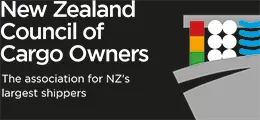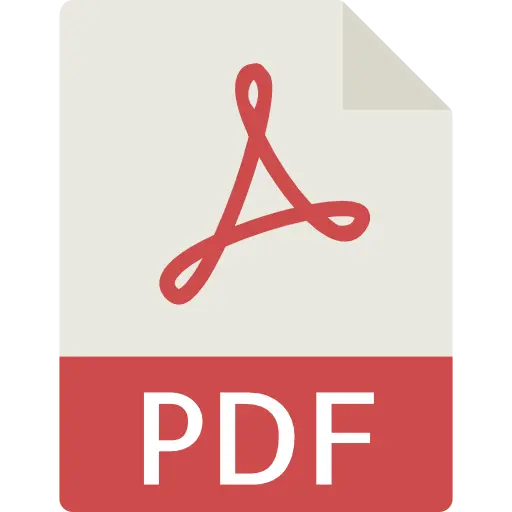In our last newsletter for the year we farewell two long serving Council members: Jack Herder (Ballance) and Robin Piggott (Dominion Salt). We thank them both for their many years of support to the Council and wish them well in their new pursuits.
Ballance’s new representative on the Council is Leo Berntsen and the Dominion Salt representative is Brett Hobson.
We have ended the year with an active membership of 24 Full member organisations and 22 Affiliates; welcoming new members Bathurst Resources (Sam Johnstone) and NZ Steel (Shona Gleeson) in the current year.
Our name change to the NZ Council of Cargo Owners is intended to clearly define and underline where the Council’s interests are focused. Aside from facilitating our advocacy efforts it is also hoped that the new name will help attract more member organisations from across the country’s export and import sectors. As an advocacy organisation our ability to influence policy outcomes is greatly influenced by the size of our membership so boosting numbers is a continuing priority.
The following is a wrap up of some of the key issues and developments the Council has pursued over the course of 2019.
Brexit
Brexit negotiations loomed large at the beginning of the year. Keeping members up to date on the implications and developments has been an ongoing task given the continuing uncertainty. Council has kept members informed by circulating preparatory information provided by NZTE, MFAT and Customs. We have also maintained engagement with ICLC on the lines’ intentions regarding contingency planning in the event that port / supply chain congestion causes vessels to miss their slot, with consequential failure to unload cargoes at the destination port.
The UK is now almost certainly going to pass a law bringing into force the terms of the agreement reached by the Johnson Government and the EU prior to the UK election. This Agreement will see the UK leave the EU on 31 January. The EU rules will continue to apply in the UK and for UK trade into the EU until the end of 2020. Prime Minister Johnson is adamant that the UK will not seek an extension to this date. This means that the UK has only 11 months to negotiate a FTA with the EU to replace current arrangements. This is an ambitious timeline as such agreements usually take much longer than 11 months to negotiate. If a FTA cannot be finalized by that time the prospect of a “hard Brexit” will revive itself.
After 31 January the UK can begin negotiating FTAs with other jurisdictions. This might see the commencement of negotiations with New Zealand. The outcome of any UK-NZ FTA cannot come into effect until after 1 January 2021.
2020 Global Sulphur Limit /MARPOL Annex VI
All members will be well aware of the rapidly approaching commencement of the MARPOL treaty mandating low sulphur emissions for treaty signatories. As well as engaging with ICLC about the lines’ intentions and readiness for this significant change, Council has taken every opportunity to impress upon officials and relevant Ministers our concerns about the length of time it has taken New Zealand to sign up to MARPOL Annex VI. (We submitted on this point in the Ministry’s consultation paper at the beginning of the year.) Very recently the Government has announced that New Zealand is expected to accede to Annex VI in late 2021.
Upper North Island Supply Chain Study
The UNISC study has been a topic of significant interest to Council given the impact that a decision to move POAL would have right across the supply chain.
Following the initial working group presentation to members in late 2018 we have keenly awaited the opportunity for robust consultation on the report. Unfortunately this has not eventuated – a point that Council made to Minister Shane Jones when we met in November. The lack of substance in the UNISC report and poor process surrounding the study is disappointing and we look forward to the opportunity to fully participate in any further process around this project.
Biosecurity
At our February OGM Council agreed to sign up to the BioSecurity Business Pledge as a Supporting Organisation; undertaking to promote and encourage our individual member organisations to sign up to the pledge and to make a commitment to more actively integrate biosecurity into their business activities and supply chains. Many members have now signed up and we will be actively encouraging the remainder to do so. Alongside promotion of a culture of proactive biosecurity management, a key benefit of joining the pledge campaign is improved early engagement with Biosecurity NZ on emerging biosecurity issues and risks.
Council was represented at the official launch of the Business Pledge in October and has ongoing representation in the Steering Committee which will drive the pledge programme forward. Stay tuned for details of the pledge programme activities, being undertaken in partnership between government and business and that will kick off in Q1 2020.
Supply chain advocacy
Advocacy on behalf of shippers’ interests across the supply chain is at the core of the Council’s activities. Throughout the year we have maintained our engagement with Ministers Twyford, Jones, and Genter, Ministry of Transport representatives, including Chief Executive Peter Mersi, Maritime NZ, NZ Customs, Ministry of Primary Industries/BioSecurity and WorkSafe.
We are particularly pleased that the Council will be represented on Minister Jones’ new Freight and Logistics Reference Group; details of which are expected to be released in March 2020.
It was very timely to welcome the Chair and Chief Executive of the new Infrastructure Commission at Council’s recent Strategy Day and we look forward to further meetings in 2020. A new workstream for the Council arising from Strategy day is the development of case studies for the Commission that highlight freight supply chain infrastructure priorities.
The bunker adjustment mechanisms / low sulphur surcharges were discussed at both the AGM and recent strategy
day and we will continue to monitor the impacts of the new LSF regime for NZ shippers.
A raft of submissions have been lodged on behalf of the Council this year on topics including MARPOL Annex VI, Customs User Charges, and the Methyl Bromide reassessment; and we have also submitted expressions of support for the Ruakura Inland Port development and Ports of Auckland channel deepening.
Media engagement is another channel for our advocacy. Council has released several media statements this year to draw attention to issues of concern to the membership. These include support for NZ BioSecurity’s Brown Marmorated Stink Bug response, our expression of concern about Long Beach VSA transit times, and a statement urging Government to maintain investment in quality roading infrastructure.
We have also responded to numerous media enquiries seeking comment on developments impacting shippers; ranging from the likely impact of lifting the EU block exemption regulation, and port sector industrial action across the Tasman to our views on the reports of the UNISC working group. On the latter there was notable media coverage in the National Business Review 7/10 “What shippers think of closing Ports of Auckland”.
Stakeholder relationships
This year we have worked on lifting our engagement with supply chain stakeholder organisations, where there are issues of mutual interest or concern on which we can support each other. In this respect it has been pleasing to forge a relationship with the Road Transport Forum. Chief Executive Nick Leggett presented at the Council’s OGM on an issue of significant mutual concern – truck driver shortages – and opened the door for ongoing dialogue with members about specific road transport issues.
During the year we took the opportunity to invite ICLC representatives and the Port CEOs group to attend member meetings. These have provided useful opportunities for discussion across a broad range of topics from container movement management and port congestion to planning for the introduction of low sulphur fuels.
Early in the new year we are looking to start closer engagement with CBAFF to discuss joint opportunities around supply chain workforce.
Key dates NZCCO 2020 calendar:
Feb 11: Feb 26: August 26:
Meeting with Port CEO group (Wellington) NZCCO OGM (Christchurch)
NZCCO AGM (Wellington)
Details of these meetings will be forwarded in due course.
Wishing you all a safe and happy Christmas.
New Zealand Council of Cargo Owners Inc. Email:executiveofficer@nzcco.org.nz c/o 70 The Terrace, Wellington 6143

